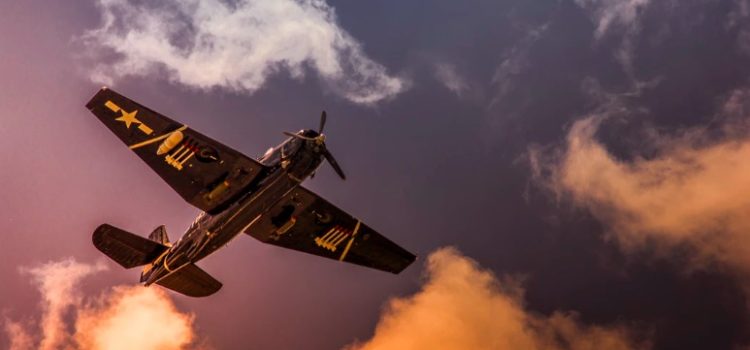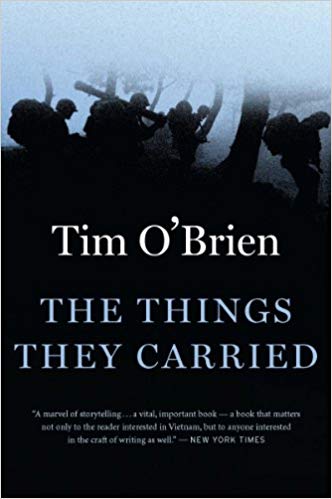

This article is an excerpt from the Shortform summary of "The Things They Carried" by Tim O'Brien. Shortform has the world's best summaries of books you should be reading.
Like this article? Sign up for a free trial here .
Who are the main The Things They Carried characters? How do their stories demonstrate both the humanity of soldiers and the dehumanizing effects of war?
The Things They Carried is a collection of interconnected short stories about the experiences of a company of young American men serving in the Vietnam War. We’ll cover the primary The Things They Carried characters and their main scenes in the book.
The Things They Carried
The Things They Carried Character: TIM O’BRIEN
The primary The Things They Carried character is Tim O’Brien himself.
The book blurs the line between fiction and autobiography. It is told mainly from the first-person perspective of a middle-aged writer named Tim O’Brien, who is looking back on his time during the war. Tim O’Brien, however, is also the name of the actual author of The Things They Carried—it is unclear if the main character (and narrator) of the book is meant to be the same person as the author (who is also a Vietnam veteran).
We see O’Brien’s early experiences with grief and loss as he recounts the death of his childhood girlfriend in the 1950s, his reluctance to go to war when he is drafted, the trauma and chaos he experiences when he is in Vietnam, and his attempts to make peace with his past and achieve closure with the war when he revisits the combat scenes of his youth with his daughter.
The Things They Carried Character: LIEUTENANT JIMMY CROSS
First Lieutenant Jimmy Cross, commanding officer in charge of Alpha Company, a unit of the U.S. Army in the Vietnam War, is reminiscing about a girl named Martha whom he knew back home. He is in love with her, but fears that his love is unrequited—although she signs off her letters to him with the customary “Love,” Cross knows that it is perfunctory and without meaning.
Cross is a reluctant commander, who never wanted the responsibility of leading men in combat. He had joined the officer training program in his sophomore year of college because it seemed preferable to the draft. He has no deep commitment to the war, and, at 24 years of age, feels himself to be entirely unsuited to be making life-or-death decisions for others. The responsibility is too much for him to bear.
To cope with his war burden, he clings to the memory and to the idea of Martha in any way he can, including tasting the envelope flaps of her letters (knowing that her tongue has been there) and keeping a small pebble in his mouth that she sent to him from a beach back home. He also endlessly ponders whether or not she is a virgin. His feelings about Martha are his tether, his connection to a world apart from the horror and mayhem of Vietnam.
The Things They Carried Character: MARTHA
Cross believes that he was daydreaming and distracted while thinking about Martha, and that this led to soldier Lavender’s demise. Wracked with guilt and shame, he is afraid to cry in front of the men. He retreats to his foxhole to weep, for Lavender, for his unrequited love for Martha, and for the world he has lost to war. The morning after Lavender’s death, Cross burns Martha’s letters and photos. He would sever the connection to his old life, commit now to his duties as a soldier—and nothing more. “Love” would no longer be a factor.
Years later, after the war, Cross reunites with the narrator, O’Brien, at the latter’s home in Massachusetts. O’Brien asks Cross what became of Martha. He tells O’Brien that he ran into her again at a college reunion in 1979 and told her that he still loved her. He’d even confessed to her his fantasy about tying her to her bed and touching her knee (which Martha had said she was glad he never acted upon).
The Things They Carried Character: DAVE JENSEN & LEE STRUNK
Other The Things They Carried characters include Dave Jensen and Lee Strunk.
Back in Vietnam—or rather, ahead in Vietnam—soldiers Lee Strunk and Dave Jensen get into a fight over a jackknife that one supposedly stole from the other. Jensen, being stronger, overpowers Strunk and breaks the latter’s nose.
This leads to a tense situation between the two men, as Jensen grows increasingly paranoid that Strunk is plotting his revenge. He scrupulously avoids Strunk at all turns. The anxiety causes Jensen to snap—one day, he starts firing his rifle indiscriminately into the air, yelling Strunk’s name.
Later that evening, Jensen takes a pistol and uses the barrel to break his own nose, to preempt Strunk’s feared retaliation. This act of penance brings about a reconciliation between the two men. They begin sharing foxholes and going on patrol and guard duty together.
They also make a solemn pact. If either of them should become seriously maimed in the course of combat, the other man agrees to mercy-kill him. They put this agreement in writing and even have some of their fellow Alpha Company men stand as witnesses.
This grim covenant is shortly put to the test when Strunk loses his right leg after stepping on a mortar round. When Jensen comes to see his friend’s wound, however, Strunk pleads with him not to kill him. Jensen assures Strunk that he will not kill him, and the company has Strunk airlifted into the chopper to be taken to a field hospital. The men later learn that Strunk dies from his wounds while he’s en route. Jensen is relieved to be spared from performing his harsh duty.
The Things They Carried Character: HENRY DOBBINS
O’Brien recalls another man in Alpha Company, Henry Dobbins, as being highly drawn to sentimentality. Dobbins carried his girlfriend’s pantyhose around his neck, but not out of a sexual predilection. For Dobbins, the pantyhose were a talisman, a good-luck charm, something that made him feel protected.
O’Brien recalls Dobbins as being more drawn to the idea of being nice to people as a minister rather than grappling with any weighty theological considerations, remembering Dobbins saying, “All you can do is be nice. Treat them decent, you know?”
The Things They Carried Character: NORMAN BOWKER
A significant The Things They Carried character is Norman Bowker.
After the war, a soldier from Alpha Company named Norman Bowker returns to his hometown in Iowa. He is unable to find a meaningful use for his life after the war, and spends his days and nights wistfully driving his car along the lake in his town, remembering friends lost and a life gone by. He thinks about his best friend from high school who drowned in the same lake and about his teenage sweetheart, Sally Kramer, who is now married.
He imagines conversations that he’d like to have with all the people in his life, but never actually does. He fantasizes about visiting Sally and impressing her with his war-taught skill of being able to tell time without looking at a clock. He is haunted by the Silver Star medal for uncommon valor that he almost won in Vietnam, but never did. His life has become a series of regrets, unfulfilled promises, and dreams unrealized.
O’Brien tells us that Norman Bowker shared this story with him in 1975, three years before Bowker hanged himself in the locker room of a YMCA. He had sent O’Brien a long, rambling, and disjointed letter in which he shared his thoughts on life after Vietnam; his resentment toward “patriotic idiots” who knew nothing about what the war was actually like; and his feeling that he had actually died back in the shit field all those years ago, rendering his life after that moment a mere addendum or epilogue to his story.
The Things They Carried Character: RAT KILEY
O’Brien reflects on two separate occasions in which he was hit by gunfire in Vietnam. The first time was when Rat Kiley was still with the company. As a skilled medic, Kiley had been able to successfully apply a compress, stop the bleeding, and get O’Brien to an emergency evacuation helicopter. O’Brien even recalls Rat Kiley almost hugging him as he was being helped into the chopper. After a short hospital stay, O’Brien returned to the company in the field.
When he returned, however, he discovered that Kiley was no longer with the unit, having suffered his own gunshot wound and transferred to a hospital in Japan. What really happened, however, was much more disturbing. Kiley had, in fact, suffered a mental breakdown, believing that the insects in the jungle were personally out to get him. He had begun compulsively scratching himself, eventually covering himself in scabs and open sores. The strain of his job as a medic, having to constantly attend to the dead and dying, had finally pushed him past his limits. In desperation, Kiley shot himself in the foot to get out of active combat duty, although Cross told Kiley that he would present it as an accident to the military authorities.
The Things They Carried Character: TED LAVENDER
One of the men under Cross’s command, Ted Lavender, is shot in the head and killed while the company is stationed outside a small village. His death comes entirely out of the blue, without warning. By this point, the burden of war has hardened the men—death is no longer (at least outwardly) a cause for shock or displays of grief. They coldly and unemotionally observe how Lavender’s body hit the ground. They note that his death was un-dramatic and oddly mundane—in their words, “the poor bastard just flat-fuck fell. Boom. Down. Nothing else.” Of the 17 men—now 16—only Rat Kiley shows any shock as he repeatedly remarks, as if in shock, “The guy’s dead.”
The Things They Carried Character: AZAR
Soldier Azar is one of the most unlikeable The Things They Carried characters. He seems to genuinely relish the most ghoulish aspects of Vietnam and takes pleasure in watching the pain and suffering of others.
O’Brien decided to psychologically torment Jorgenson and turned to the darkly cruel Azar for help. They chose a night when they knew Jorgenson had been selected to pull night guard duty as their moment to strike, knowing how ghostly and terrifying nights in Vietnam could be, when one’s mind tended to run wild with the worst fears imaginable. All of the potential horrors of war could be projected onto the blackness of the night. O’Brien and Azar knew that Jorgenson would be at his most psychologically vulnerable when he was alone in the dark.
They hid in the bushes and rattled cans and tripped flares. Finally, O’Brien asked Azar to stop, feeling that his need to psychologically balance the equation with Jorgenson had been met. But Azar was unable to stop, instead carrying the “prank” to more and more extreme lengths, firing off more flares and even tear gas grenades at Jorgenson. O’Brien himself was cowering in fear and shock and pleading with the sadistic Azar to stop. Jorgenson eventually fired back at the “enemy,” impressing O’Brien with how cool and collected he was. It is only at this moment that Jorgenson realized the whole ordeal was a prank. Azar left, disgusted with O’Brien, labelling him the “sorriest fuckin’ specimen I ever seen.”
The Things They Carried Character: KIOWA
Among the men of Alpha Company, only one soldier, Kiowa, a Native American who carries his New Testament on his person at all times, shows any introspection.
O’Brien reveals why he was unable to write about Kiowa’s death. It is because he feels that he was responsible, not Bowker. Right before the attack, O’Brien and Kiowa had been talking together in the field, sharing stories from back home. O’Brien had shown Kiowa a picture of his girlfriend Billie and used a flashlight to illuminate the photograph. The light from the flashlight gave away the company’s position to the enemy, causing the firefight which led to Kiowa’s death. Naturally, O’Brien is haunted because he believes he is responsible for the gruesome death of his friend.
The Things They Carried Character: CURT LEMON
Rat had served with a man named Curt Lemon who was known for volunteering for the most dangerous combat assignments, like late-night reconnaissance missions and patrols. Lemon was also celebrated for being a daredevil with what his fellow soldiers saw as a terrific sense of humor. According to Rat, Lemon once went out to a Vietnamese village, nude except for a mask and full body paint, to go “trick-or-treating,” bewildering the villagers in the process.
Lemon was killed in action when he accidentally stepped on a landmine while he and Rat were goofing off by tossing smoke grenades back and forth.
The Things They Carried Character: MARY ANNE
One of the men in Rat’s unit, Mark Fossie, decided to bring his American girlfriend out to Vietnam. After some time with the unit, Mary Anne became accustomed to life in Vietnam, learning about weaponry and military hardware, coming to understand the intricacies of Army tactics and maneuvers, learning some Vietnamese, and growing more and more curious about what was in the mountains beyond the unit’s base camp.
Mary Anne developed a fascination with the war, especially its most grisly realities. She got an adrenaline rush from treating injured soldiers and seemed to be at her most comfortable and serene when she was surrounded by the chaos and violence of warfare. She had become more of a natural soldier than any of the men in Kiley’s unit, remarking, “Everything I want is right here,” and telling Fossie that she’d never been happier in her whole life.
One night, Mary Anne didn’t come back to the base. At first thinking she was sleeping with one of the other soldiers, Fossie and Kiley searched the entire camp, but found no trace of her. It dawned on them that Mary Anne wasn’t missing or captured—she had gone out on ambush with the Green Berets. Vietnam had consumed her. She had gone native.
The Things They Carried Character: LINDA
Finally, another important The Things They Carried character is Linda.
O’Brien tells the story of his childhood girlfriend Linda, who died of a brain tumor when they were both nine years old.
One day, a bully managed to knock Linda’s cap off during class, revealing her bald scalp beneath. Linda was sick with a brain tumor and had lost all her hair—she had been wearing the cap to cover it up. Later, O’Brien’s mother explained to him that Linda was terminally ill and would soon pass away from the tumor. Linda survived the school year and summer, but died during the September when O’Brien was entering the fifth grade. Foreshadowing the callous and cold way death would be treated on the fields of Vietnam, the same bully who humiliated Linda in class told O’Brien of her death by coming up to him during recess and telling him that Linda had “kicked the bucket.”
His experience with Linda was O’Brien’s first glimpse into the power of storytelling. After her death, he began to invent elaborate stories in which Linda was still alive. His dreams and his stories became his secret meeting place with his lost friend. He could bring Linda to life again by telling her story. He could make her real, make her smile and speak. In one of his dreams, the dead Linda likened herself to an old book on a library shelf that hadn’t been checked out for a long time. All she could do was wait for someone to check her out—for someone to tell her story and bring her to life again.
———End of Preview———

Like what you just read? Read the rest of the world's best summary of "The Things They Carried" at Shortform . Learn the book's critical concepts in 20 minutes or less .
Here's what you'll find in our full The Things They Carried summary :
- What the Vietnam War was like for soldiers on the ground
- How Vietnam soldiers dealth with the psychological stress of death around them
- How fictional stories can be truer than the truth






